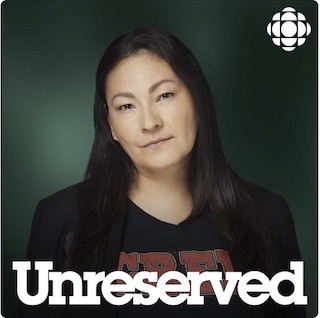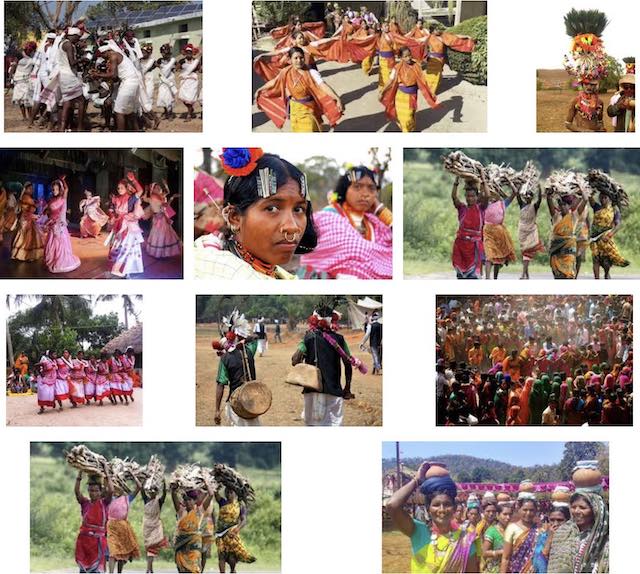This lecture was recorded for broadcast on Ideas on CBC Radio One. Listen to the full episode (54:00) >>
Every culture tries to answer a fundamental question: What does it mean to be human and alive? In the Milton K. Wong Lecture, anthropologist Wade Davis explores some of the diversity of human culture, and considers what knowledge and expertise we lose by obliterating, or at best ignoring, traditional cultures. **This episode originally aired September 23, 2015.
HIGHLIGHT CLIP: The more languages and cultures that survive and thrive, the more hope there is for our collective future
Source: Catalogues of Culture – Home | Ideas with Paul Kennedy | CBC Radio
Address: http://www.cbc.ca/radio/ideas/catalogues-of-culture-1.3239209
Date Visited: Sat May 21 2016 09:03:55 GMT+0200 (CEST)

“Unreserved is the radio space for Indigenous voices – our cousins, our aunties, our elders, our heroes. Rosanna Deerchild guides us on the path to better understand our shared story. Together, we learn and unlearn, laugh and become gentler in all our relations.” | Listen to more episodes | Related posts >>
Every culture is a unique answer to a fundamental question: What does it mean to be human and alive? Wade Davis leads on a thrilling journey to celebrate the wisdom of the world’s indigenous cultures. In Polynesia, set sail with navigators whose ancestors settled the Pacific ten centuries before Christ. In the Amazon, meet the descendants of a true lost civilization, the Peoples of the Anaconda. In the Andes, discover that the earth really is alive, while in the far reaches of Australia, experience Dreamtime, the all-embracing philosophy of the first humans to walk out of Africa. Travel to Nepal to encounter a wisdom hero, a Bodhisattva, who emerges from 45 years of Buddhist retreat and solitude. And, finally, settle in Borneo, where the last rainforest nomads struggle to survive.
Understanding the lessons of this journey will be our mission for the next century. Of the world’s 7,000 languages, fully half may disappear within our lifetimes. At risk is a vast archive of knowledge and expertise, a catalogue of the imagination that is the human legacy. Rediscovering a new appreciation for the diversity of the human spirit, as expressed by culture, is among the central challenges of our time.
Monday, June 22, 2015, 7-9pm. FREE.
Frederic Wood Theatre, 6354 Crescent Road, UBC Point GreyWADE DAVIS is Professor of Anthropology and the BC Leadership Chair in Cultures and Ecosystems at Risk at the University of British Columbia. Between 1999 and 2013 he served as Explorer-in-Residence at the National Geographic Society and is currently a member of the NGS Explorers Council. Author of 17 books, including The Serpent and the Rainbow, One River, The Wayfinders and The Sacred Headwaters, he holds degrees in anthropology and biology and received his PhD in ethnobotany, all from Harvard University. His many film credits include Light at the Edge of the World, an eight-hour documentary series written and produced for National Geographic. Davis is the recipient of 11 honorary degrees, as well as the 2009 Gold Medal from the Royal Canadian Geographical Society for his contributions to anthropology and conservation, the 2011 Explorers Medal, the highest award of the Explorers Club, the 2012 David Fairchild Medal for botanical exploration, and the 2013 Ness Medal for geography education from the Royal Geographical Society. His latest book, Into the Silence, received the 2012 Samuel Johnson prize, the top award for literary nonfiction in the English language.
Source: 2015 Milton K. Wong Lecture | UBC Continuing Studies
Address: https://cstudies.ubc.ca/public-lectures/milton-k-wong
Date Visited: Sat May 21 2016 09:08:31 GMT+0200 (CEST)
Born: Edmund Wade Davis in British Columbia, Canada
Anthropologist and botanical explorer Wade Davis received his Ph.D. in ethnobotany from Harvard University. Mostly through the Harvard Botanical Museum, he spent more than three years in the Amazon and Andes as a plant explorer, living among 15 indigenous groups in eight Latin American nations while making some 6,000 botanical collections. Davis’s […]
A research associate of the Institute of Economic Botany of the New York Botanical Garden, he also is a board member of the David Suzuki Foundation, Ecotrust, Future Generations, and Cultural Survival-all NGOs dedicated to conservation-based development and the protection of cultural and biological diversity. Davis’s television credits include Earthguide, a 13-part television series on the environment, which he hosted and co-wrote. He also wrote for the documentaries Spirit of the Mask, Cry of the Forgotten People, and Forests Forever. | See full bio »
Source: Wade Davis – IMDb
Address: http://www.imdb.com/name/nm0205634/
Date Visited: Sat May 21 2016 11:25:33 GMT+0200 (CEST)
Up-to-date reports by Indian experts and journalists
Search tips
Combine the name of any particular state, language or region with that of any tribal (Adivasi) community.
Add keywords of special interest (music, poetry, dance just as health, sacred grove and biodiversity); learn about the rights of Scheduled Tribes such as the “Forest Rights Act” (FRA); and the United Nations “Declaration on the Rights of Indigenous Peoples”, “Universal Declaration of Human Rights”, “women’s rights”, or “children’s right to education”.
Specify any other issue or news item you want to learn more about (biodiversity, bonded labour and human trafficking, climate change, ecology, economic development, ethnobotany, ethnomedicine, global warming, hunter-gatherers in a particular region or state, prevention of rural poverty, water access).
For official figures include “scheduled tribe ST” along with a union state or region: e.g. “Chhattisgarh ST community”, “Himalayan tribe”, “Scheduled tribe Tamil Nadu census”, “ST Kerala census”, “Particularly Vulnerable Tribal Group Jharkhand”, “PVTG Rajasthan”, “Adivasi ST Kerala”, “Adibasi ST West Bengal” etc.
In case the Google Custom Search window is not displayed here try the following: (1) toggle between “Reader” and regular viewing; (2) in your browser’s Security settings select “Enable JavaScript” | More tips >>
Note: hyperlinks and quotes are meant for fact-checking and information purposes only | Disclaimer >>
List of websites covered by this Google custom search engine
Academia.edu (platform for academics to share research papers) – www.academia.edu
Archive.org – https://archive.org
Centre for Science and Environment – https://www.cseindia.org
Current Conservation – https://www.currentconservation.org
Development and Cooperation (D+C) https://www.dandc.eu
Down To Earth (India) – www.downtoearth.org.in
India Environment Portal – www.indiaenvironmentportal.org.in
Harnessing Nature Magazine – https://harnessingnature.online
Mongabay-India – https://india.mongabay.com
M S Swaminathan Research Foundation – www.mssrf.org
Navdanya (protecting India’s biodiversity based food heritage) – https://navdanya.org
Third World Network (Penang, Malaysia) – https://twn.my
The Shola Trust (nature conservation in the Nilgiri region) – www.thesholatrust.org

Indian online periodicals and platforms | Images view >>
~ ~ ~
Personalize your CustomSearch by combining other search words >>
(e.g. name of a tribal community and region, a craft, or dance and puppetry)
Research the above issues with the help of Shodhganga: A reservoir of theses from universities all over India, made available under Open Access >>
Note: hyperlinks and quotes are meant for fact-checking and information purposes only | Disclaimer >>
See also
CBC Unreserved (Canada) radio space for indigenous community, culture, and conversation
eLearning: Center for World Indigenous Studies
Indigenous people are at the forefront of the struggle to save the planet
Internet Archive | Archive.org
People’s Archive of Rural India (PARI) | RuralIndiaOnline.org
Recovering tribal culture from the misrepresentation of mainstream media
Storytelling | Success stories